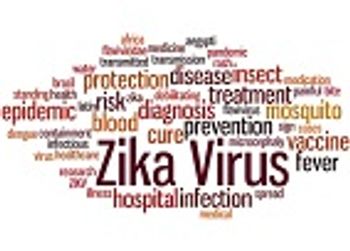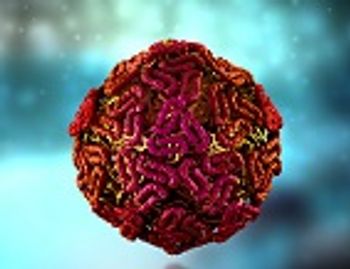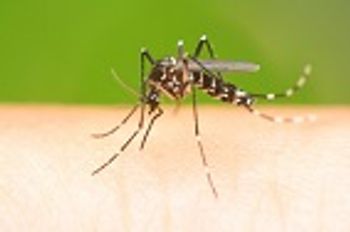
Investigators at the National Institute of Allergy and Infectious Diseases (NIAID) and the National Human Genome Research Institute (NHGRI) believe they have found the key to developing a universal vaccine for influenza.

Investigators at the National Institute of Allergy and Infectious Diseases (NIAID) and the National Human Genome Research Institute (NHGRI) believe they have found the key to developing a universal vaccine for influenza.

Recently, there have been several breakthroughs in the fight against HIV, including trials that would test an HIV vaccine targeting a specific subtype of the virus, and several prevention methods that would reduce the risk of infection transmission.

Through July 5, health officials in the state of Florida have reported 13 cases of the bacterial infection, and four deaths, in four counties in the state that lie along the Gulf coast.

Recent studies show that women are at higher risk of contracting HIV; however, measures can be taken to prevent infection, as well as the transmission of HIV from mother to child.

The US Food and Drug Administration has approved VIEKIRA XR, the first co-formulated three direct-acting antiviral for adults diagnosed with genotype 1 (GT1) chronic hepatitis C virus (HCV) infection.

A recent study has described the use of next-generation sequencing to develop novel approaches that could serve as a public health tool to track pathogens such as Escherichia coli during disease outbreaks.

Leptospirosis is an important zoonotic bacterial disease of worldwide public health importance. It affects humans, domestic animals, and wildlife and is caused by different Leptospira serovars.

Following an outbreak of acute flaccid myelitis (AFM) identified at Children’s Hospital Colorado in Aurora over three months in 2014, a potential association has been found between enterovirus D68 (EV-D68) infection and AFM in pediatric patients.

A recent report describes a case of infectious aortitis and resultant mycotic abdominal aneurysm that arose as rare complications of exposure to Pasteurella multocida from a cat bite in a male patient.

Researchers in Guadeloupe, the French territory in the southern Caribbean Sea, have reported, for the first time, the presence of Zika infection in the genital tract of a woman with the virus.

Researchers from the University of California-San Francisco (UCSF) have provided a roadmap for how the Zika virus travels from the blood of an infected pregnant woman to her fetus, providing new clues to the process by which the disease leads to birth defects.

As a second case of non–travel-related Zika infection comes to light in Florida, researchers from Brazil discover another mosquito that they believe may be spreading the virus.

Researchers from the United Kingdom have demonstrated how whole genome sequencing technology can be used to track the spread of infection in Neisseria gonorrhea—an important finding given that the number of drug-resistant strains of the sexually transmitted infection (STI) has reportedly been increasing.

The Centers for Disease Control and Prevention (CDC) announced that it will be granting a total of $60 million, in addition to previously granted funds, to states, cities, and territories, to protect Americans from the virus.

Those patients who survive infections caused by the Ebola or Marburg viruses may gain at least partial immunity to other filoviruses through specific antibodies generated during serological immune responses.

The Centers for Disease Control and Prevention (CDC) is currently working with local health officials to investigate what seems to be the first case of locally-acquired Zika in the United States.

Groundbreaking research has uncovered several possibilities to potentially cure HIV in patients receiving antiretroviral therapy (ART), while a new drug prohibits the virus from maturing, preventing viral infection of new cells.

A norovirus vaccine developed by Takeda is the first and only one to be tested in human trials.

The belief that patients may face increased risks of complications following reduced antibiotic use after experiencing self-limiting respiratory tract infections (RTIs) may not be well-founded.

Despite one reported death from West Nile Virus in November 2015, Louisiana health officials report a decline in the occurrence of the mosquito-borne illness.

Which came first: high Zika viral load or a diminished immune system? This is a question that epidemiologists and medical experts from the Centers for Disease Control and Prevention are pondering in regards to the recent case of Zika identified in Salt Lake City, Utah that may have resulted in the individual's death.

That may be the “$64,000 Question” facing clinicians in South America and the Caribbean, where 3 viruses linked with the Aedes aegypti mosquito have caused concurrent epidemics, resulting in confusion as efforts are made to diagnose and treat them.

The Hawaii State Department has confirmed an open investigation of the hepatitis A infection in Oahu, Hawaii.

With more humans encroaching the forest habitats, there are more opportunities for the acquisition of pathogens from their natural hosts.

The number of confirmed cases in the outbreak has been attributed to the reluctance of some to be vaccinated.

On the heels of new data suggesting the Zika epidemic will last for another 3 years, a new case reveals there may be a new mode of zika transmission.

Congress failed to reach a decision on Zika funding today as a new study reveals that the epidemic is expected to last well into 2019.

With the 2016 Rio Olympic Games less than one month away, the Centers for Disease Control and Prevention (CDC) released a statement summarizing their assessment of the risk of Zika importation by those returning from the summer Games.

A new technological approach to genome editing that can clear latent and productive herpesvirus infections from human cells in vitro could eventually lead to a potent prophylactic.

The US Food and Drug Administration (FDA) just approved the first test to detect human papillomavirus (HPV) using specific samples.